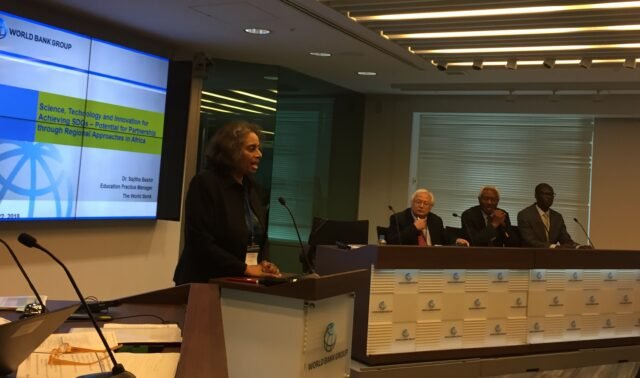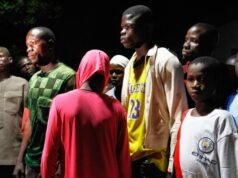The World Bank has once again taken the lead in strengthening academic and research ties between Africa and Japan. On Saturday, the institution hosted the Africa–Japan Higher Education Partnership Matchmaking Seminar at the JICA Yokohama Centre, bringing together Africa Centers of Excellence (ACEs), Japanese universities, and industry stakeholders for a day of collaboration, dialogue, and fresh opportunities.
Unlike a typical academic conference, this event was designed as a practical matchmaking forum. The goal was not just to talk about cooperation but to build partnerships in real time, linking African universities to potential Japanese collaborators in fields such as science, engineering, agriculture, health, and technology. The seminar was held in a hybrid format, allowing both in-person and online participation.
The focus was clear: to expand the Africa Centers of Excellence (ACE) initiative and encourage sustainable, impactful relationships that benefit students, researchers, and the broader African economy.
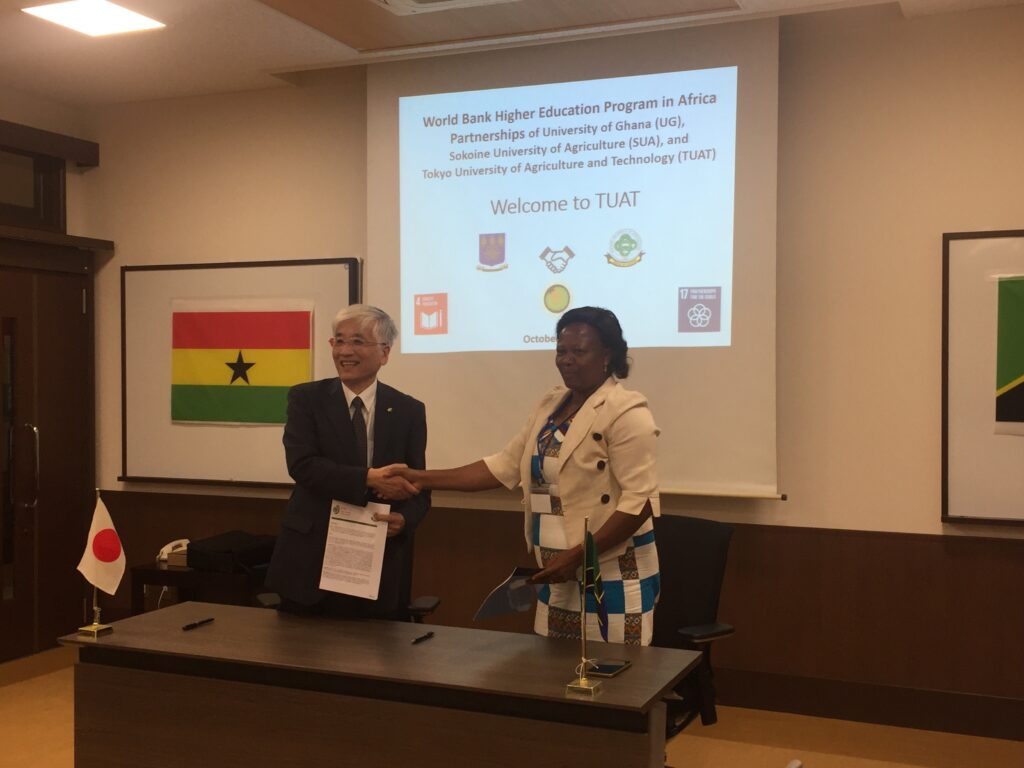
Table of Contents
How World Bank’s ACEs Are Driving Change
The Africa Centers of Excellence (ACE) initiative is one of the World Bank’s flagship education programmes in Sub-Saharan Africa. It was launched in 2014 with the aim of boosting specialised research, postgraduate training, and regional collaboration across key development sectors. Since then, ACEs have become critical hubs for applied sciences, engineering, health, agriculture, and technology.
According to the World Bank, these centres are “game-changers” because they focus on Africa’s most urgent needs. From developing new agricultural methods to combating tropical diseases, ACEs are building the expertise that African countries need for sustainable growth.
This year’s matchmaking seminar is not the first of its kind. Back in 2018 and 2019, similar sessions led to more than ten Memoranda of Understanding (MoUs) between African and Japanese institutions. Those early partnerships laid the groundwork for joint research projects, student exchanges, and collaborative training programmes.
By aligning the 2025 event with TICAD-9 (Tokyo International Conference on African Development), the World Bank is positioning higher education at the heart of Africa–Japan cooperation. It signals that investing in universities is just as important as investing in infrastructure when it comes to development.
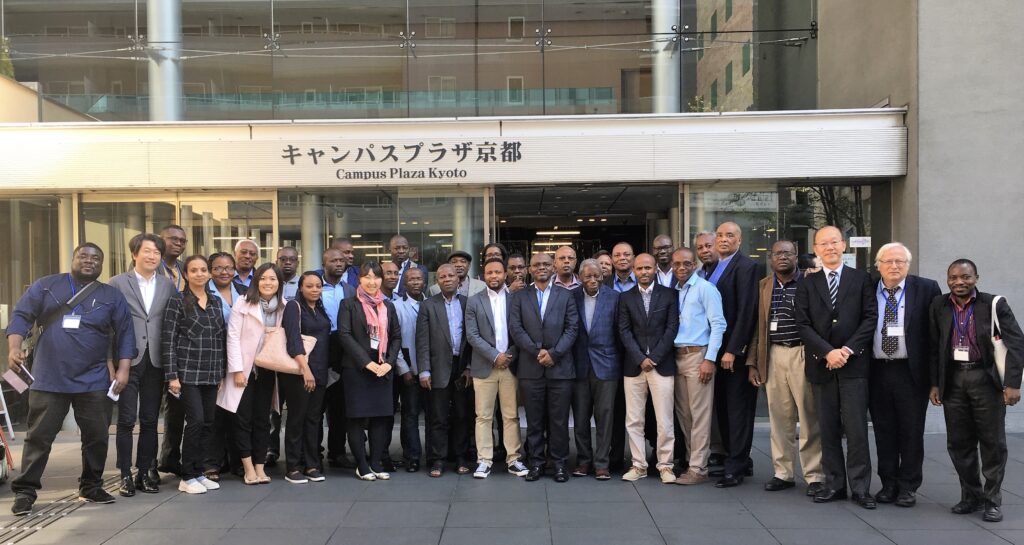
Who Took the Stage: ACEs from Across Africa
Nine Africa Centers of Excellence participated in this year’s seminar, representing five African countries. Each had a chance to showcase their specialised expertise in short but powerful presentations.
From Ethiopia, Addis Ababa University’s Africa Centre of Excellence for Water Management presented its work on sustainable water use—a critical issue for both Africa and Asia.
From Ghana, Kwame Nkrumah University of Science and Technology (KNUST) introduced the Regional Transport Research and Education Centre (TRECK), highlighting its contribution to Africa’s growing transport and logistics sector.
Malawi had a strong presence with multiple ACEs from Lilongwe University of Agriculture and Natural Resources (LUANAR), Mzuzu University, and the University of Malawi. Their focus areas ranged from aquaculture and neglected biodiversity to agricultural policy and resilient agri-food systems.
From Nigeria, Ahmadu Bello University presented the Africa Centre of Excellence for Neglected Tropical Diseases and Forensic Biotechnology (ACENTDFB)—a centre tackling health challenges that often receive little global attention.
From Togo, Université de Lomé showcased its Regional Centre of Excellence for Electricity Management (CERME), addressing Africa’s urgent energy needs.
Following the presentations, the event moved into focused matchmaking sessions. Whether in person or online, participants were encouraged to identify mutual interests and begin sketching out practical areas of collaboration.
Why This Seminar Matters for Africa and Japan
The World Bank Facilitates Africa–Japan Higher Education Partnership Seminar is more than an academic networking event—it is an investment in the future. By linking African universities with Japanese knowledge and technology, the programme is helping to address pressing challenges while creating long-term academic and economic benefits.
The objectives of the seminar were threefold:
- Introduce and elevate the work of ACEs to a Japanese audience, showing how they are transforming postgraduate education and applied research in Africa.
- Build direct partnerships between African and Japanese universities and industries, with potential for joint research, student exchange, and innovation projects.
- Support TICAD-9 goals, which emphasise inclusive development, industrialisation, and sustainable partnerships between Africa and Asia.
For Africa, the seminar represents an opportunity to access cutting-edge Japanese expertise in technology, agriculture, health, and energy. For Japan, it opens the door to new markets, new research environments, and stronger diplomatic ties with African nations.
Dr. Satoshi Arai, a Japanese higher education expert who attended the seminar virtually, explained it this way: “Japan has much to learn from Africa, particularly in areas like biodiversity and climate resilience. At the same time, Japan can share its experience in advanced technologies and sustainable systems. That is why seminars like this are so important—they create a two-way bridge.”
Equally, African academics see the value in such cooperation. Professor Ibrahim Dogo of Ahmadu Bello University remarked that access to Japanese laboratories and joint research programmes could “accelerate solutions for diseases that have plagued African communities for decades.”
Beyond research, these partnerships also help prepare Africa’s next generation of leaders. By engaging in student and faculty exchanges, young Africans are exposed to global perspectives and training opportunities that enhance their competitiveness in the international job market.
In the long run, the ripple effects go beyond education. Stronger universities mean stronger societies—where research drives policy, innovation fuels industries, and skills development creates jobs.
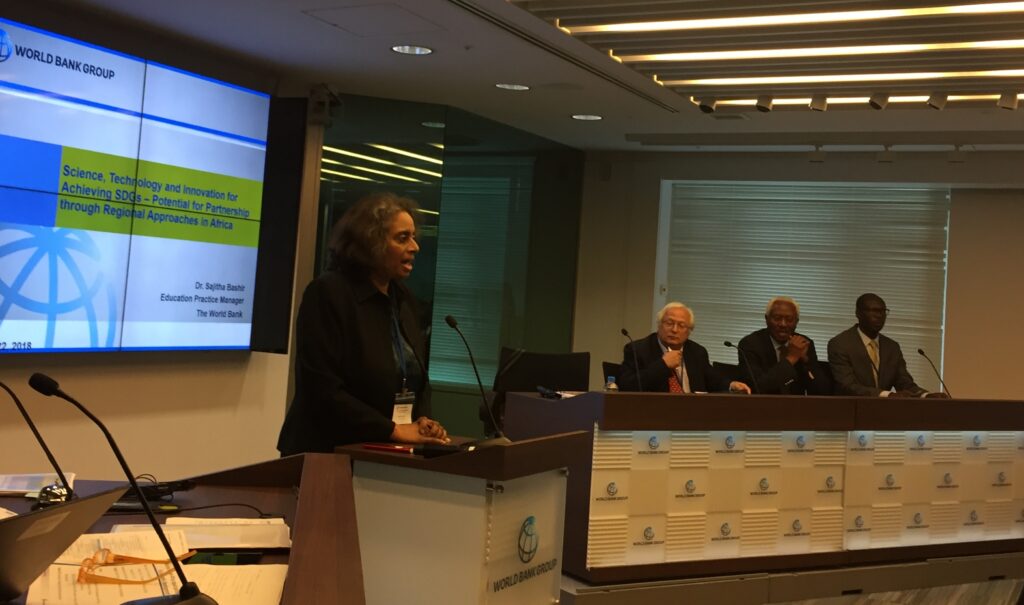
Conclusion: A Seminar with Lasting Impact
The seminar in Yokohama is a reminder that development is not only about roads, power plants, or financial investment—it is also about knowledge. By bringing together Africa’s brightest academic centres and Japan’s world-class universities and industries, the World Bank is helping to create partnerships that can solve real problems and shape the future.
As the matchmaking sessions progress into concrete projects, observers expect new memoranda of understanding, research collaborations, and exchange programmes to emerge in the coming months. What started as a one-day seminar could ripple out into decades of cooperation, innovation, and growth.
For Nigeria and other African countries represented, the message is clear: education is no longer a local affair. It is an international endeavour, and partnerships like this are the key to unlocking Africa’s potential in a rapidly changing world.
Join Our Social Media Channels:
WhatsApp: NaijaEyes
Facebook: NaijaEyes
Twitter: NaijaEyes
Instagram: NaijaEyes
TikTok: NaijaEyes
READ THE LATEST EDUCATION NEWS


